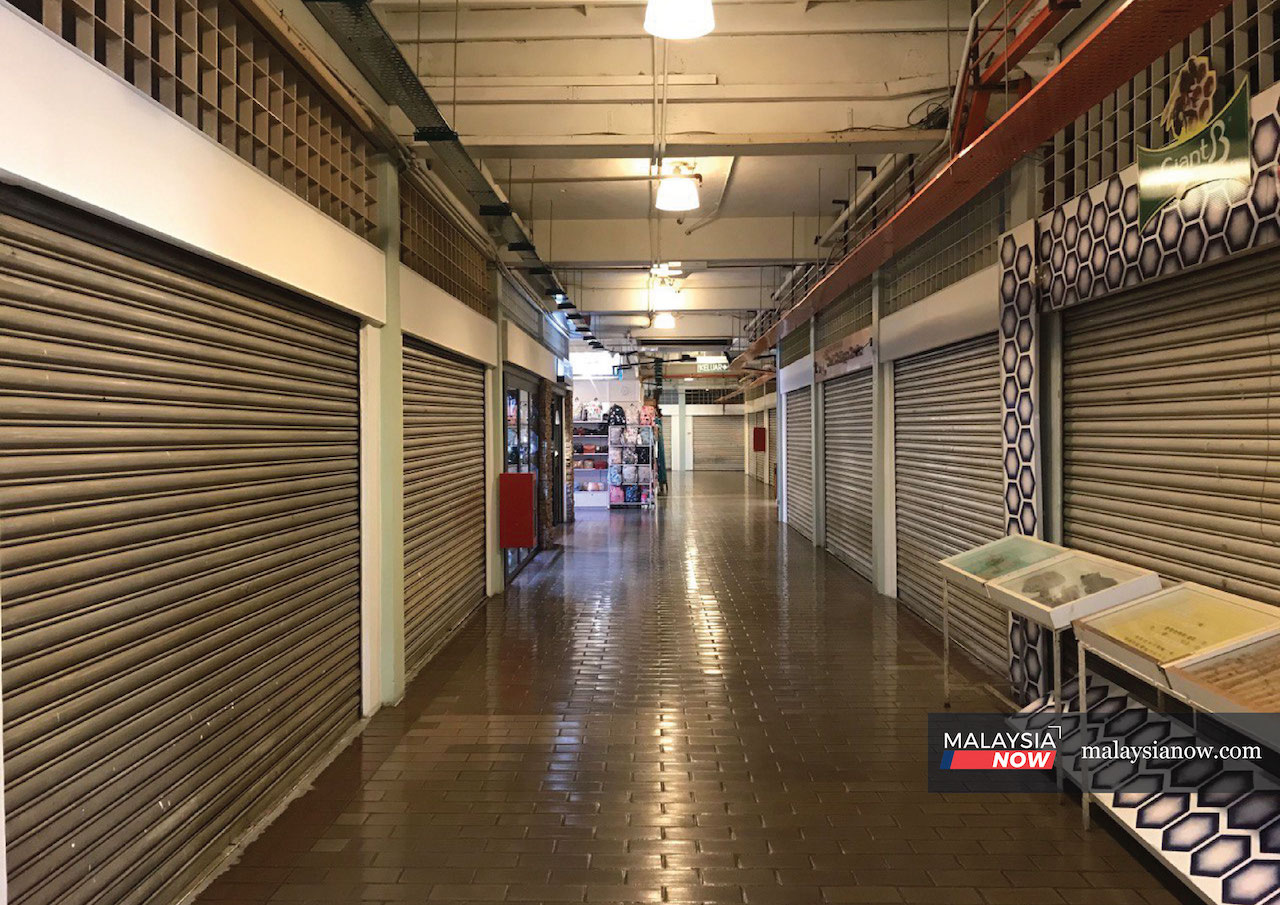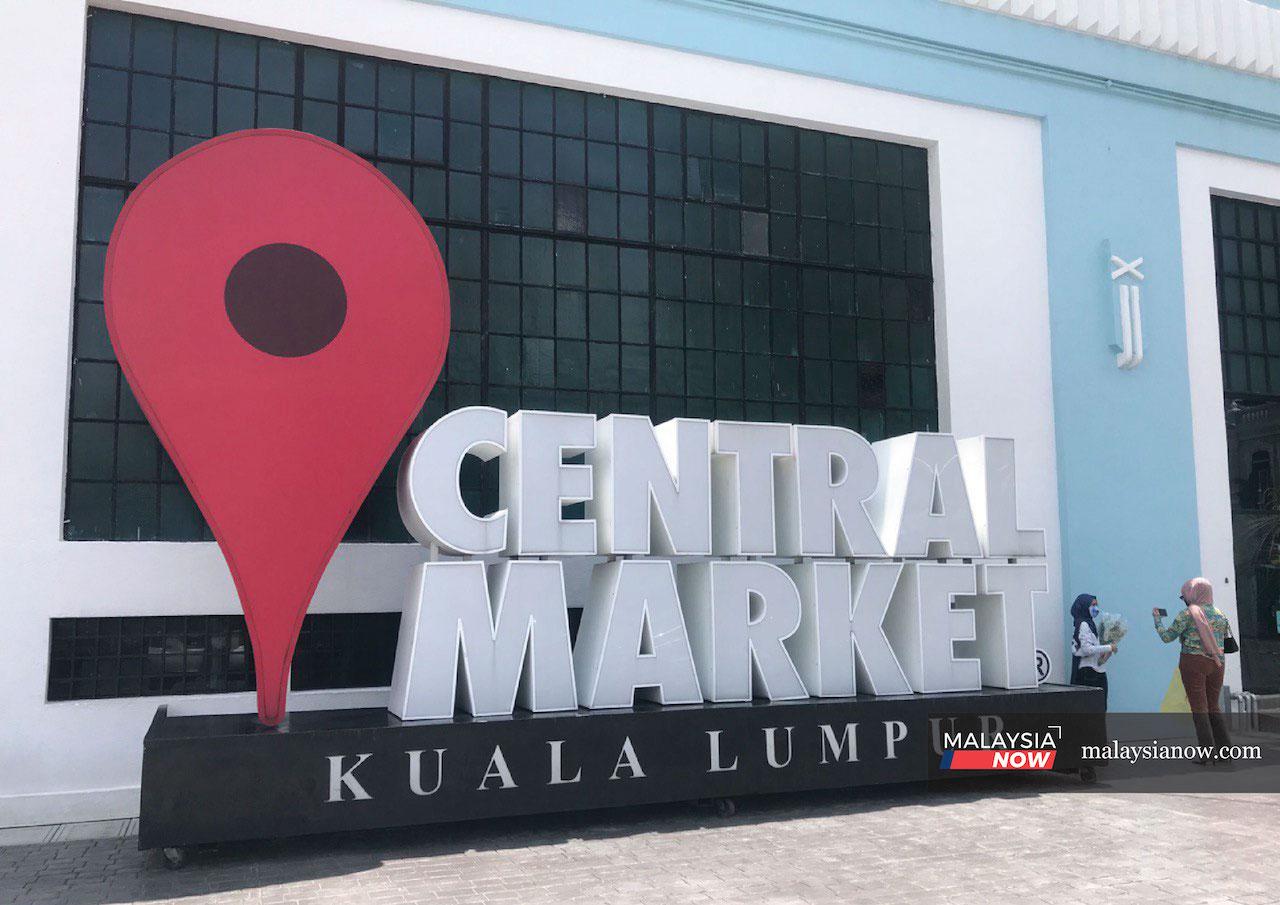With tourist lifeline long gone, KL’s Pasar Seni traders reminisce about the good old days
Some are determined to keep going but for many, the Covid-19 pandemic has caused seemingly irreversible change.
Just In
A little over a year ago, the Pasar Seni area in Kuala Lumpur was packed with tourists taking in the sights and sounds of one of the busiest spots in the capital city.
Traders stood by their stalls, calling out to passers-by at the light blue Central Market building, known for its historical value and for the many handcrafted souvenirs and gifts readily available at rock-bottom prices.
But the tourists are long gone and the traders are now left with only each other in the huge empty market.
Even this company is slowly fading as one by one, they succumb to the financial challenges brought about by the Covid-19 pandemic.
Andy, who has managed a shop at Central Market for 13 years, said his business had plunged 90% since the first movement control order (MCO) was announced in March last year.
His shop, which sells gifts, souvenirs and customised pewter trinkets, had mostly catered to foreign tourists who have been few and far in between since the country’s borders were shut early last year in a bid to curb further spread of the virus.

On a good day before the pandemic, he could pull in sales of at least RM800 per day. On weekends, this could even hit RM2,000.
But now, the tourists are gone and Andy struggles to survive from one day to the next.
“Right now, I can go up to four days with no sales at all,” he told MalaysiaNow.
Customers these days are mostly locals who haven’t visited the market in years. “They are here for nostalgic reasons,” Andy added.
He has also had to let go of his staff as he can no longer afford their salaries.
Rosnah, another trader, spends her days sitting in front of her shop along Lorong Melayu. The shop, which sells souvenirs featuring local landmarks, stands out among the closed shutters on either side.
In the earlier days after the first MCO was lifted and tourist hotspots were allowed to operate again, she had hoped that business would pick up.
Instead, she found herself struggling to stay afloat, even with the reduction in rental given by the management.
“I get nothing now,” she said. “Even with the rental reduction, my business is still struggling.”

Like Andy, she has had to let go of her staff as the money she makes is not enough to pay even her own salary.
“I had to fork out my savings just to pay the rent,” she added.
After the drop in foreign tourists, Rosnah tried selling more local products in the hope of attracting Malaysians to her shop. This strategy has not worked.
“As long as the borders are closed, our problems will continue,” she said. “Even when I brought in local products, I could only get sales of at most, RM20 a day.”
Nearly every trader at Pasar Seni with whom MalaysiaNow spoke had the same story to tell.
Nita has been working at the Lorong Cina zone for five years now. She said Pasar Seni is even more deserted now during the fasting month as locals only go out to buy food, not souvenirs.

Nita used to operate three stores with two of her friends. Both of them have thrown in the towel, saying they can only get customers once in four days if they are lucky. Now, one of the stores has permanently closed and Nita struggles to manage the other two on her own.
“When we had three stores, we could make RM50,000 a month,” she said. “Nowadays, it can reach the point where we don’t open our cash registers for almost a week.”
If the pandemic continues for another year, she expects her remaining shops to fold as well.
“Our business is barely surviving now. If the pandemic continues, I’d say we won’t even last another year.”
Others like Andy are more optimistic. Despite his dismal sales, he said the pandemic is no reason to close shop. He told MalaysiaNow he has faith that opportunities will come if he stays open.
“It feels like there’s no end to Covid-19,” he added. “But I always believe we have to be disciplined so that opportunities can come to us.”
Still, there’s no disagreeing with Nita: “Covid-19 has really changed things around here.”
Subscribe to our newsletter
To be updated with all the latest news and analyses daily.
